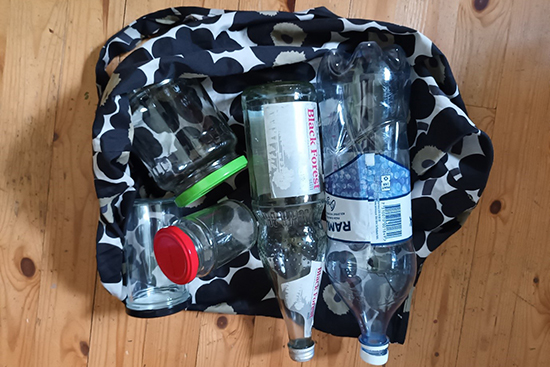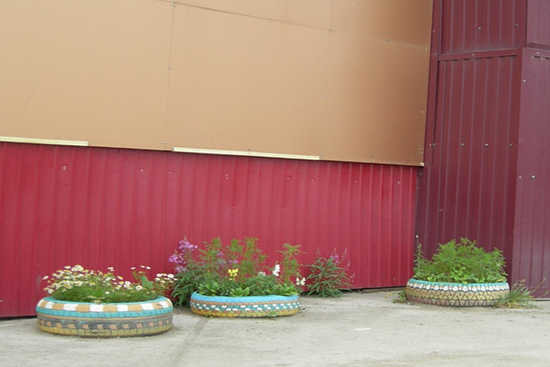Circular bioeconomy: Biogas tank – a container for treating manure from livestock and green waste (Loue, Finland). Photo: Anna Stammler-Gossmann
New Finnish-Argentinian project CIBIECO focuses on the ideas of the circular bioeconomy and their practical implementation in small enterprises in Finland and Argentina.
Doing more with less, building capital from waste rather than reducing it, and keeping economy in the circular loop are the core issues of the Circular Bioeconomy: From Concept to Practice -project (CIBIECO) funded by TFK 2022 Team Finland Knowledge Programme.
Project leader Anna Stammler-Gossmann from the Arctic Centre at the University of Lapland says that as humans, we have adopted a linear so-called “take, make and dispose” approach.
– In the living world, there is no waste disposal site – the waste of one species is the food of another, things grow and then die, and nutrients return to the soil. Can we change our linear ways of thinking so that we operate in the same circular way as the more-than-human world?
CIBIECO project stems from the idea that the concept of circular bioeconomy, which offers new ways to achieve more sustainable economic growth and go beyond a merely recycling process, is still a field in its infancy. While recycling begins at the end, a circular economy goes right back to the beginning preventing waste from being created in the first place. However, there are many structural, legal and cost-related challenges in implementing this concept in practice.
Objectives of the project are built around four critical fronts:
1. Education: To develop and integrate a new field of study based on research and the needs of communities working life in a comparative context.
2. Knowledge exchange: To assess the experiences of transferring the circular bio-economy concept to practice in both polar regions and identify best practices.
3. Working life cooperation: To enhance the co-production of knowledge between education and local community enterprises.
4. Long-term partnership: To develop ideas for future educational and research activities.
CIBIECO project partners represent different disciplines – social anthropology, applied biology, food science, chemistry, material technology, and biomass refining technology.
The project consortium includes four Higher Educational Institutions as members: Arctic Centre (University of Lapland, Finland, lead institution), Centria University of Applied Sciences (Finland), National University of Río Cuarto (Argentina), National University of Tierra del Fuego, Antarctica and South Atlantic Islands (Argentina).
– The CIBIECO project combines research, teaching and local communities working life. In this way, it offers a great opportunity for the expertise exchange in issues of regional transition from a "linear" to "circular" economy, identifying the local approaches to cycle the valuable resources and contributing to the empowerment of local communities, Stammler-Gossmann concludes.

Recycling: Reuse of a previously processed or waste material. Recycling is an important process, but it is still not enough to overcome the amount of waste we produce; toprevent the pollution from being created in the first place and it is cost consuming: waste collection, sorting, processing, materials are getting weaker during the recycling process and cannot be recycled repeatedly. Photo: Anna Stammler-Gossmann

Upcycling: From car tyres to flowerbed. Upcycling is a valuable strategy and a creative process in producing a higher quality product that already have a story. However, the resulting product still needs to enter the recycling infrastructure. Photo: Anna Stammler-Gossmann.
More information:
Dr. Anna Stammler-Gossmann
University Researcher
Coordinator of the Arctic Studies Programme
Arctic Centre, University of Lapland
Anna.Stammler-Gossmann at ulapland.fi
+358 400 882 065